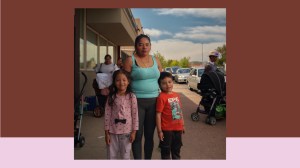In this series


The first client intake I observed at Pittsburgh’s Christian Immigration Advocacy Center (CIAC) was a legal dead end.
CIAC ministry director Rogerio Torres sat behind a desk crammed into a drab office dominated by shelves of paperback Bibles. Rogerio is one of four staffers at CIAC (pronounced “kayak”) who are accredited representatives through the US Department of Justice’s Recognition & Accreditation Program, which allows people who aren’t lawyers to provide select legal services to low-income immigrants and refugees.
Across from Rogerio was the client, a glamorous Ukrainian woman named Dariia Savenko. In a flawlessly coordinated outfit of black and white, trimmed with pearls, she explained to Rogerio how she, her two children, and her boyfriend came to be in the United States. “I crossroad in Mexico, in Tijuana, before the Ukraine program,” she said. But now, “I don’t have idea what to do.”
For 20 minutes, Rogerio reviewed Dariia’s documents and options. She’s in the country through Uniting for Ukraine, which provided temporary immigration status for Ukrainian refugees of Russia’s invasion. But that status will expire in a matter of months if it’s not extended, and Rogerio could offer little hope for a path to legal long-term residency.
“Wait a minute,” Dariia said as the conversation wound down. “Okay. Okay. We have another options for legalization, or no?”
“In the moment, no.”
And that was that—well, almost. Before saying goodbye, with a smoothness obviously born of extensive practice, Rogerio asked Dariia if he could pray. “I dunno if you believe in God,” he said, “but we believe in God, and we know that we plan things, but God is the one who establishes.”
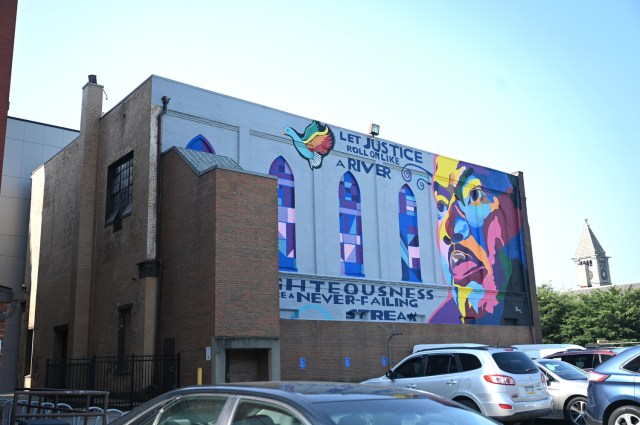 Photography by Hannah Yoon for Christianity Today
Photography by Hannah Yoon for Christianity Today Photography by Hannah Yoon for Christianity Today
Photography by Hannah Yoon for Christianity Today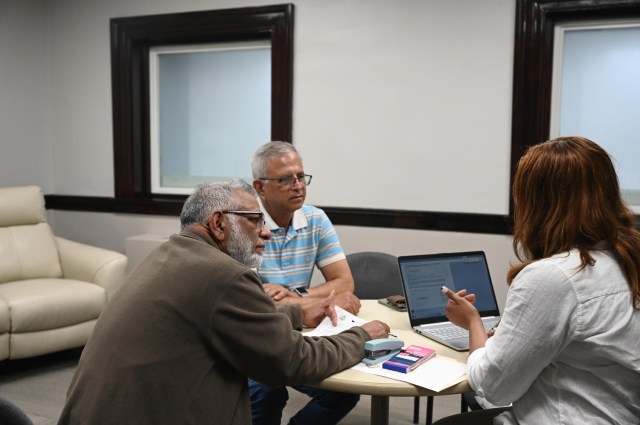 Photography by Hannah Yoon for Christianity Today
Photography by Hannah Yoon for Christianity TodayShe assented, and Rogerio prayed for Dariia, for her boyfriend, for their uncertain future, and for the revelation of God’s plan for their lives. “It seems that all we can do is to pray,” he finished, “so I’m offering this prayer in the name of Jesus, Lord, so that they will have peace in their hearts that you are in control.”
Dariia is unlikely to return to CIAC, Rogerio told me after she’d left, and that isn’t an unusual outcome for these intakes. All the CIAC staffers I interviewed were clear on their purview: CIAC is not a policy advocacy organization and only works with clients—often refugees and others eligible for a green card or US citizenship—who have an active, licit immigration status and viable legal options going forward.
Intakes are free, but for most services, clients pay modest, income-scaled fees ranging from $40 to $3,000. The organization never works with those in the US illegally, though it may connect them to churches and other local ministries. Nor does CIAC typically handle asylum cases, which are so involved that they’d eat up too much of the group’s limited time and budget.
During three days of interviews and observation, I saw how painstakingly conscientious this team is. Staff members want to help clients achieve their legal goals. But more than that, they want to tell the truth—about clients’ immigration status and prospects, yes, but also about God and his love for each person CIAC serves (which is on track to be more than 1,000 this year).
CIAC, which has grown rapidly since opening in 2019, receives hosting from Allegheny Center Alliance Church (ACAC), a large and long-
standing Christian and Missionary Alliance congregation in Deutschtown, on the north side of Pittsburgh. CIAC board member Glenn Hanna, who founded the ministry, was ACAC’s missions pastor until his retirement, and CIAC clients sometimes visit and join the church.
ACAC is a neighborhood institution and an integral part of the CIAC story. When other local churches moved to the suburbs in the midcentury era of white flight and urban renewal, Hanna told me, ACAC chose to stay and actively pursue integration across racial, economic, and political lines.
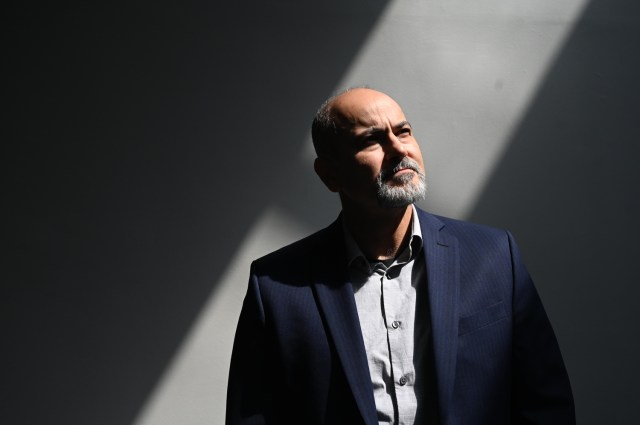 Photography by Hannah Yoon for Christianity Today
Photography by Hannah Yoon for Christianity Today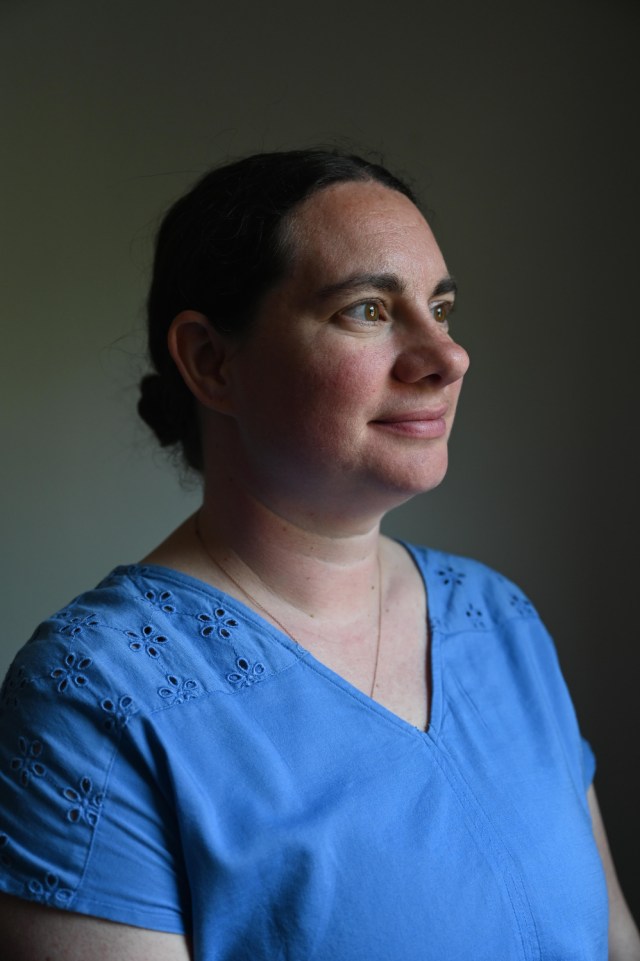 Photography by Hannah Yoon for Christianity Today
Photography by Hannah Yoon for Christianity TodayHanna joined it as a congregant in the 1990s, committing on the spot when a pastor bluntly spoke against racism from the pulpit. In three decades of membership, he’s seen the church pour resources into Deutschtown’s dilapidated streets, funding a community health center, offering ESL classes, and buying a nuisance bar to shut it down.
CIAC, then, is just one fruit of those decades of faithfulness—and several other congregations are setting up their own programs. One early adopter is my own church, Church of the Ascension in Pittsburgh, where Jennifer Tinker, an immigration attorney who helped Hanna with CIAC’s launch, runs a small offshoot on Thursday evenings.
Many stories of CIAC clients are frustrating or sad, but not all. CIAC aids people like Camille Alves Damota, who came to the United States from Guyana with her three kids in 2020. The marriage to a US citizen that brought her here lasted just seven months, she said, rapidly devolving into abuse. Fearing for herself and her children and unable to navigate Pittsburgh’s tangled streets, she contacted CIAC and met with accredited representative Jessica Weaver, who came to Camille’s home for the initial intake.
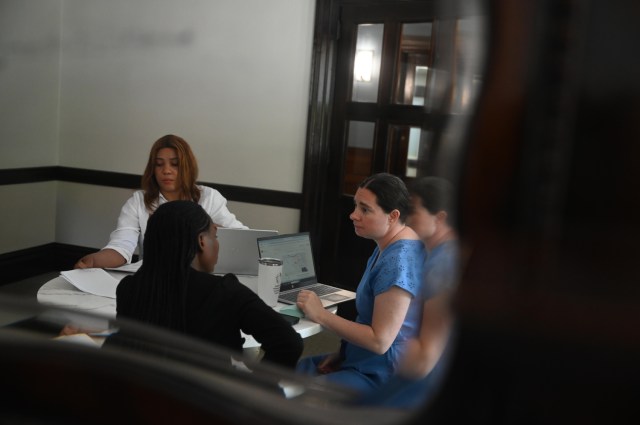 Photography by Hannah Yoon for Christianity Today
Photography by Hannah Yoon for Christianity Today“Since then, they’re on it,” said Camille, a small woman wearing a bright sweater and a nose ring. “If I call Jessica or any one of the staff, they would be there, try to help me.” With CIAC’s aid, Camille obtained her green card and is moving toward citizenship. She got a driver’s license and a job, and she’s working on her GED.
“I never really give up because I pray and I say, ‘No, God’s going to guide everything,’ ” Camille told me. “I thank God every day—it’s all God.” But she made a point of ending our talk with thanks to CIAC too: “They have so much patience.”
Bonnie Kristian is the editorial director of ideas and books at Christianity Today.








